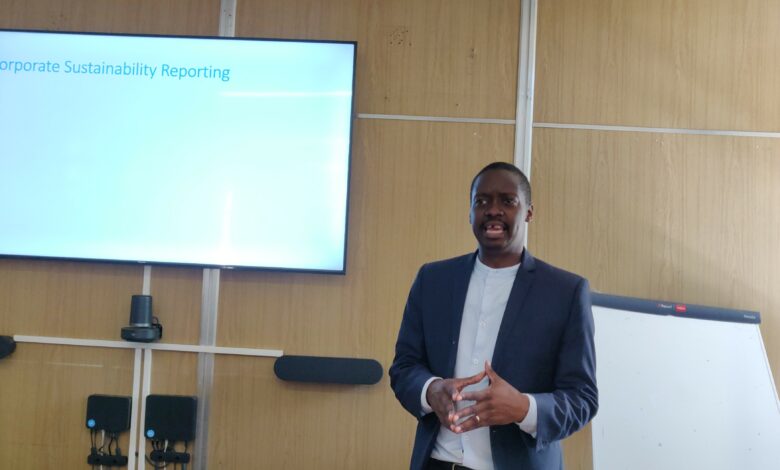Most companies hide sustainability report data: BCC

Most companies are not disclosing their sustainability reports to communities they operate in making it difficult for them to be held accountable, a Bulawayo City Council (BCC) report has shown.
This was contained in the outcome of a study on Corporate Environmental Reporting in Zimbabwe.
Speaking during the meeting, BCC cleansing superintendent Nkanyiso Ndlovu said the local authority conducted a study that focused on 58 companies listed in the Zimbabwe Stock Exchange at the time of the study.
The study revealed that there was inadequate stakeholder engagement between communities and corporates on environmental issues.
Ndlovu said the results of the study were shocking as companies are expected to produce sustainability reports as this makes it easier for communities to make follow-ups when companies are in the wrong.
“When we were looking at these reports further, we noticed that some of these reports were violating the accuracy precedence, you find that a company is reporting something which is not accurate or which is not true,” he said.
“Some reports were not clear, it could be genuine mistakes or deliberate. It was noted that obsolete figures for present reporting year as well as for the previous year were disclosed in most environmental reports where epi have been reported to ease of comparability. It was, however, observed that most corporates do not include intensity metrics and this limits the confidence of comparing the performance of two different companies of the same sector; some reports were in violation of the trueness principle.”
He urged all corporates to produce sustainability reports as expected.
“Secondly, those sustainability reports have to be balanced, accurate, clear, comprehensive and true, this will assist stakeholders to make informed decisions based on those sustainability reports.”
Ndlovu said communities and individuals should look for sustainability reports so as to ensure that companies operating in their area are handling the environment in a proper way.
“Most companies think for us and make decisions on our behalf. What we noticed in our study is that a significant number of companies don’t report on their environmental performance, social performance because the sustainability report also provides how many people from the community the company employed. The report also includes how many females were employed by the company, all those things are not coming out in some companies,” said Ndlovu.
“Thus why you will find that when these companies leave, they would have taken all the wealth because they came with their people who were taking the money back where they came from and you will be left with nothing, so those are some of the things we should consider.”
He added, “All this information you are able to get it in their sustainability reports and then can engage companies so that we all improve, we need to be able to get a sustainable future for our children and we need to be able to make sure that this one planet that we have, we preserve it for future generations.”
The study also revealed that all community leaders stated that they had never attended a stakeholder engagement activity nor heard of any community member who had attended such an exercise meant to solicit the views of the community on corporate sustainability performance or environmental matters in general.
“The study mixed opinions on the power that communities have to influence corporates on environmental performance issues. One community leader stated that he did not believe that communities had power to influence corporates to improve their environmental performance because communities had little knowledge on this matter hence they were incapacitated to act,” said Ndlovu.






